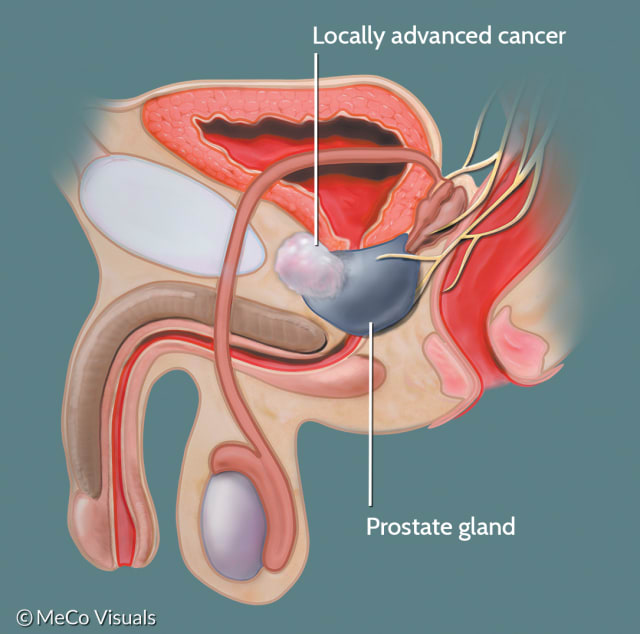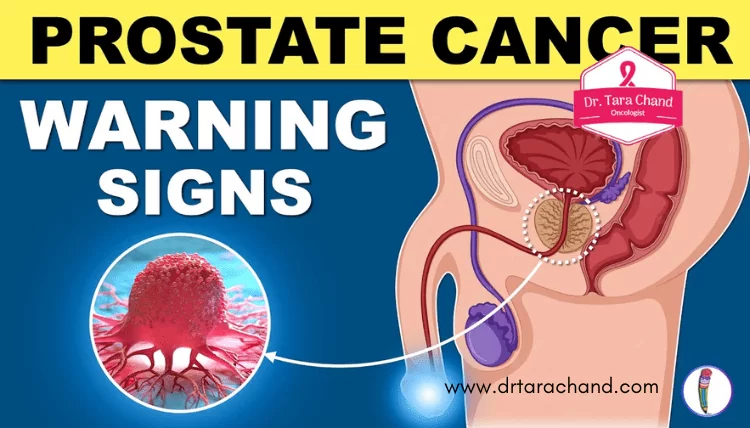Libido 101: Everything You Need to Know About Your Sexual Desire

Understanding Sexual Desire: Exploring the Basics

Sexual desire is a complex and multifaceted aspect of human sexuality. It is an innate drive that motivates individuals to seek out sexual experiences and connections with others. Understanding the basics of sexual desire is crucial in order to navigate and maintain a healthy and fulfilling sex life.
At its core, sexual desire is influenced by various physiological, psychological, and sociocultural factors. These factors interact and intertwine to shape an individual’s level of sexual desire and willingness to engage in sexual activities. Hormonal changes, such as fluctuations in testosterone and estrogen levels, can have a profound impact on sexual desire. Additionally, psychological factors, including emotional well-being, stress levels, and past experiences, play a significant role in shaping an individual’s sexual desires and preferences.
Cultural and societal influences also play a significant role in shaping sexual desire. Expectations, norms, and beliefs surrounding sexuality can differ greatly across cultures, and individuals may internalize these influences, either conforming or deviating from them. Understanding how cultural and societal influences impact sexual desire is essential in order to recognize and challenge any restrictive or harmful beliefs that may hinder sexual fulfillment.
In conclusion, sexual desire is a complex interplay of various factors, including physiology, psychology, and cultural influences. By exploring the basics of sexual desire, individuals can gain a deeper understanding of their own desires and preferences, as well as those of their partners. This knowledge lays the foundation for building healthy and satisfying sexual relationships.
The Factors Influencing Sexual Desire: Unveiling the Secrets

Factors influencing sexual desire are complex and multifaceted, encompassing a wide range of biological, psychological, and socio-cultural elements. Understanding these factors is essential for individuals seeking to navigate their own desires and cultivate fulfilling sexual experiences.
One crucial factor that influences sexual desire is hormonal fluctuations. Hormones play a significant role in regulating sexual desire, with testosterone being particularly influential in both men and women. Research has shown that low levels of testosterone can contribute to a decrease in sexual desire, while higher levels can enhance it. Additionally, the menstrual cycle in women, characterized by fluctuating levels of estrogen and progesterone, can also impact sexual desire. The first half of the menstrual cycle, known as the follicular phase, is associated with increased desire, while the second half, called the luteal phase, may see a decline. Understanding these hormonal shifts can provide valuable insights into fluctuations in sexual desire throughout the monthly cycle.
The Psychological Aspect of Sexual Desire: Unraveling the Mind-Body Connection

Sexual desire is a complex phenomenon that involves the intricate interplay between the mind and body. The psychological aspect of sexual desire delves into the connection between our thoughts, emotions, and physical experiences. Understanding this connection is crucial in unraveling the complexities of sexual desire and fostering a healthy and satisfying sexual life.
Our psychological state plays a pivotal role in shaping our sexual desires. Factors such as stress, anxiety, depression, and body image issues can significantly impact our libido. When we experience high levels of stress or emotional turmoil, our bodies produce cortisol, a hormone that can suppress sexual desire. Similarly, negative body image and self-esteem issues can lead to a diminished interest in sexual activities. On the other hand, positive mental well-being, a sense of intimacy, and emotional connection with our partner can enhance sexual desire. This highlights the importance of addressing psychological factors and maintaining good mental health to foster a fulfilling sexual experience.
Cultural and Societal Influences on Sexual Desire: Navigating Expectations
Cultural and societal influences play a significant role in shaping our perceptions and expectations surrounding sexual desire. These influences vary greatly across different cultures and societies, resulting in diverse attitudes towards sexuality. In some cultures, sexuality is celebrated and embraced as a natural aspect of human existence, while in others, it may be suppressed or associated with guilt and shame.
The expectations imposed by our cultural and societal backgrounds can heavily impact our beliefs and behaviors related to sexual desire. These expectations can range from the role of gender and sexual orientation to the significance of virginity and marital status. For example, in certain cultures, there may be a societal pressure for men to exhibit high levels of sexual desire, while women are expected to be more passive. These expectations can lead to misconceptions and conflicts within individuals and relationships, as they may not align with personal desires and preferences.
It is essential to recognize and navigate these cultural and societal influences on sexual desire in order to foster a healthy and fulfilling sexual life. By understanding the potential biases inherent in our cultural beliefs, we can challenge and redefine our own expectations, allowing for greater self-acceptance and sexual exploration. Open and honest communication within partnerships can help navigate these influences, fostering mutual understanding and the ability to establish boundaries and desires that are authentic to each individual. Ultimately, it is crucial to embrace diversity and respect personal choices while challenging societal norms surrounding sexual desire.
Hormonal Changes and Sexual Desire: Exploring the Science Behind It
Hormonal changes play a significant role in the regulation of sexual desire. One key hormone that influences sexual desire in both men and women is testosterone. Testosterone is primarily known as the male sex hormone, but it is also present in smaller amounts in women. Studies have shown that low levels of testosterone can lead to a decrease in sexual desire. This hormone is responsible for initiating the physiological processes that contribute to sexual arousal, such as blood flow to the genitals and the production of vaginal lubrication in women.
Another hormone that affects sexual desire is estrogen. In women, estrogen levels fluctuate throughout the menstrual cycle, with higher levels occurring during ovulation. Estrogen has been found to increase sexual motivation and arousal in women. However, it is worth noting that the relationship between estrogen and sexual desire is complex and can vary from person to person.
In addition to testosterone and estrogen, other hormones like prolactin, oxytocin, and serotonin also play a role in sexual desire. Prolactin, for instance, is known to decrease sexual desire, while oxytocin promotes feelings of intimacy and bonding, which can enhance sexual desire in some individuals.
Understanding the intricate interplay between hormones and sexual desire is crucial in addressing issues related to low libido. By identifying hormonal imbalances and addressing them through targeted interventions, individuals can take proactive steps towards boosting their sexual desire and overall sexual satisfaction.
Certainly! Here’s information on hormonal changes and their impact on sexual desire, exploring the science behind it presented in a table format:
| Hormonal Changes and Sexual Desire: Exploring the Science Behind It | Key Hormones and Their Roles |
|---|---|
| Testosterone | – Role: Primary male sex hormone, but also present in females. Vital for libido and overall sexual function. |
| – Changes: Levels may decline with age, affecting sexual desire. | |
| Estrogen | – Role: Primary female sex hormone. Important for maintaining reproductive health and sexual well-being. |
| – Changes: Fluctuates during the menstrual cycle and decreases during menopause, impacting sexual desire. | |
| Progesterone | – Role: Involved in the menstrual cycle and pregnancy. Can affect mood and, indirectly, sexual desire. |
| – Changes: Levels vary during the menstrual cycle and decrease after menopause. | |
| Prolactin | – Role: Produced after orgasm; regulates sexual satisfaction and inhibits sexual arousal. |
| – Changes: Levels may rise after sexual activity, potentially impacting the refractory period. | |
| Oxytocin | – Role: Often referred to as the “love hormone” or “bonding hormone.” Influences emotional connections and intimacy. |
| – Changes: Released during physical touch, cuddling, and sexual activity, enhancing emotional bonds. | |
| Cortisol | – Role: Stress hormone. Chronic stress may lead to increased cortisol levels, negatively impacting sexual desire. |
| – Changes: High cortisol levels can contribute to fatigue and reduced libido. | |
| Thyroid Hormones (T3 and T4) | – Role: Regulate metabolism and energy levels. Imbalances can impact energy and sexual desire. |
| – Changes: Hypothyroidism (low thyroid function) may lead to fatigue and decreased libido. | |
| DHEA (Dehydroepiandrosterone) | – Role: Precursor to sex hormones; may contribute to libido and overall well-being. |
| – Changes: Levels decline with age, potentially affecting sexual desire. | |
| Melatonin | – Role: Regulates sleep-wake cycles. Quality sleep is essential for hormonal balance and sexual health. |
| – Changes: Disruptions in sleep patterns may impact overall well-being and sexual desire. | |
| Gonadotropins (Luteinizing Hormone and Follicle-Stimulating Hormone) | – Role: Regulate sex hormone production in the gonads (testes and ovaries). |
| – Changes: Fluctuate throughout the menstrual cycle and play a role in reproductive health. |
Age and Sexual Desire: Debunking Myths and Understanding Realities
As we age, it is common to hear myths and misconceptions about sexual desire. Many people believe that as we get older, our desire for sex naturally decreases. However, it is important to debunk this myth and understand the realities of age and sexual desire.
Contrary to popular belief, research has shown that sexual desire can remain strong and even increase with age. A study published in the Archives of Sexual Behavior found that older adults, particularly those in their 60s and beyond, reported a higher level of sexual desire compared to middle-aged adults. This suggests that age does not necessarily correlate with a decrease in sexual desire.
It is important to note that individual experiences may vary, and factors such as overall health, psychological well-being, and relationship satisfaction can have an influence on sexual desire at any age. Additionally, hormonal changes that occur with age can also affect sexual desire, but these changes are not the sole determinant. Understanding the realities of age and sexual desire can help debunk myths and contribute to a more fulfilling and satisfying sexual life as we grow older.
External Factors Affecting Sexual Desire: Stress, Medications, and Lifestyle
Stress, medications, and lifestyle are three external factors that can have a significant impact on sexual desire. Stress, in particular, is a common culprit that can dampen the flames of desire. When we are stressed, our bodies produce higher levels of cortisol, known as the stress hormone. This hormonal imbalance can disrupt the delicate balance of our reproductive system, leading to decreased sexual desire.
Medications can also play a role in affecting sexual desire. Certain medications, such as antidepressants and blood pressure medications, have been known to have sexual side effects. These side effects can range from decreased libido to difficulty achieving orgasm. It is important for individuals to communicate openly with their healthcare providers about any concerns they may have regarding sexual desire while taking medications.
Moreover, lifestyle choices can impact sexual desire. Factors such as poor nutrition, lack of exercise, and substance abuse can all contribute to a decrease in sexual desire. Maintaining a healthy lifestyle that includes a balanced diet, regular physical activity, and avoidance of excessive alcohol or drug use can help support a healthy sex drive.
Understanding and addressing the external factors that affect sexual desire is crucial for maintaining a fulfilling and satisfying sexual relationship. By managing stress, discussing potential medication side effects with healthcare professionals, and adopting healthy lifestyle choices, individuals can take proactive steps towards enhancing their sexual desire and overall wellbeing.
Enhancing Sexual Desire: Tips and Techniques for Boosting Your Drive
When it comes to enhancing sexual desire, there are various tips and techniques that can help boost your drive. One important aspect to consider is maintaining a healthy lifestyle. Regular exercise can increase blood flow to the genital area and stimulate arousal. Additionally, incorporating a balanced diet that includes foods rich in vitamins and minerals, such as fruits, vegetables, whole grains, and lean proteins, can help support sexual health. It is worth noting that certain foods, like oysters, dark chocolate, and watermelon, are believed to have aphrodisiac properties, although scientific research on their effectiveness is limited.
Another technique to enhance sexual desire is through stress reduction. High levels of stress can negatively affect libido and sexual function. Engaging in stress-management techniques, such as deep breathing exercises, meditation, yoga, or engaging in hobbies, can help alleviate stress and improve sexual desire. Furthermore, prioritizing quality sleep is essential, as lack of sleep can lead to fatigue and lower libido. Ensuring that you get enough restful sleep each night can support healthy sexual function.
Communication and Sexual Desire: Building Intimacy in Relationships
Effective communication is a vital component of building intimacy in relationships, including sexual desire. Open and honest communication allows partners to express their needs, desires, and boundaries, fostering understanding and connection. Couples who are able to effectively communicate about their sexual desires are more likely to experience heightened levels of intimacy and satisfaction within their relationship.
One key aspect of communication in fostering sexual desire is active listening. This involves giving your partner your undivided attention and demonstrating empathy and understanding. By actively listening to your partner’s desires, concerns, and feedback, you can create a safe and supportive space for open dialogue. This not only allows you to better understand each other’s needs but also helps build trust and emotional intimacy.
Understanding Differences in Sexual Desire: Bridging the Gap
Differences in sexual desire among individuals can sometimes create challenges in relationships. While it is common for partners to have varying levels of desire, it is important to bridge the gap and find a balance that works for both individuals. Understanding these differences can help create a more fulfilling and satisfying sexual relationship.
One important aspect to consider is that sexual desire can be influenced by a variety of factors, including hormonal fluctuations, stress levels, and individual preferences. For example, some individuals may experience a higher level of desire during certain phases of their menstrual cycle, while others may be more influenced by emotional factors. By recognizing and discussing these factors openly, couples can develop a deeper understanding of each other’s desires and find ways to meet each other’s needs.
The Impact of Health Conditions on Sexual Desire: Addressing Concerns
Sexual desire, a vital aspect of human sexuality, can be influenced by various factors, including health conditions. When individuals experience health problems, their sexual desire may be affected, leading to concerns and distress. It is essential to address these concerns to promote overall well-being and maintain a satisfying sexual life.
Certain health conditions can directly impact sexual desire. For example, chronic illnesses such as diabetes, cardiovascular diseases, and hormonal disorders can interfere with the body’s physiological mechanisms that regulate sexual function. In addition, mental health conditions like depression, anxiety, and stress can also contribute to a decrease in sexual desire. Understanding the specific impact of these health conditions on sexual desire is crucial in addressing the concerns and developing appropriate strategies for managing them. In some cases, seeking medical advice and treatment from professionals, such as gynecologists or urologists, can be helpful in addressing the underlying causes of decreased sexual desire and finding appropriate solutions.
In conclusion, health conditions can significantly impact sexual desire, causing concerns and affecting overall well-being. Acknowledging the influence of these conditions on sexual desire is the first step in addressing them. Seeking medical advice and treatment, when necessary, can be instrumental in managing the underlying causes of reduced sexual desire and restoring a satisfying sexual life. Nevertheless, further research and understanding of the intricate relationship between health conditions and sexual desire are essential for comprehensive and effective approaches to addressing these concerns.
Exploring Sexual Fantasies and Desires: Embracing Individuality
Sexual fantasies and desires are unique aspects of human sexuality that encompass a wide range of thoughts, imaginings, and yearnings. They are deeply personal and can vary greatly from person to person, reflecting individual preferences, experiences, and fantasies. Embracing and understanding one’s own sexual fantasies and desires is crucial for personal growth, self-discovery, and developing a healthy sexual identity.
Exploring sexual fantasies allows individuals to understand and embrace their own sexual desires, giving them the opportunity to experience pleasure and fulfillment in their sexual experiences. It is important to remember that sexual fantasies are a normal part of human sexuality and do not necessarily reflect one’s real-life desires or intentions. They serve as an outlet for imagination, exploration, and sometimes as a way to fulfill unmet needs or desires.
Research has shown that embracing and communicating about sexual fantasies within a consensual and respectful context can contribute to improved sexual satisfaction and intimacy within relationships. Additionally, exploring sexual fantasies can provide individuals with a deeper understanding of their own desires and preferences, thus helping them make informed decisions about their sexual experiences.
However, it is crucial to exercise caution when exploring sexual fantasies. Consent and clear communication, both with oneself and with any potential partners, are essential in ensuring that boundaries are respected and that all parties involved feel comfortable and safe. It is also important to distinguish between fantasy and reality, as what one imagines or fantasizes about may not necessarily align with their real-life desires or actions.
In conclusion, exploring sexual fantasies and desires is an integral part of understanding and embracing one’s own sexuality. It allows individuals the freedom to discover and express their unique desires, contributing to personal growth and sexual fulfillment. However, it is vital to approach these explorations with caution, prioritizing consent, communication, and respect for oneself and others.
Seeking Professional Help for Sexual Desire Concerns: When and How
When it comes to sexual desire concerns, seeking professional help can be an important step towards understanding and addressing the underlying issues. While it is normal for sexual desire to fluctuate over time, persistent low desire or related concerns can have a significant impact on relationships and overall well-being. Consulting with a healthcare provider, such as a gynecologist or a sex therapist, can provide valuable insights and guidance in navigating these concerns.
Timing is crucial when considering professional help for sexual desire concerns. It is recommended to seek assistance if you have been experiencing persistent issues with sexual desire that are causing distress or affecting your quality of life. This could include a lack of interest in sexual activities, difficulty becoming aroused, or challenges maintaining pleasure during sexual encounters. Although it may feel uncomfortable or embarrassing to discuss these concerns, remember that healthcare professionals are trained to address these sensitive topics in a confidential and nonjudgmental manner. They can help you understand the potential causes of your low desire and work with you to develop an appropriate treatment plan.
Maintaining Healthy Sexual Desire: Self-Care Practices for Long-Term Satisfaction
When it comes to maintaining healthy sexual desire, self-care practices can play a crucial role in ensuring long-term satisfaction. Taking care of oneself physically, emotionally, and mentally can contribute to overall well-being, which in turn can positively impact sexual desire.
One important aspect of self-care for sexual desire is maintaining a healthy lifestyle. This includes eating a balanced diet, engaging in regular physical exercise, and getting enough sleep. Proper nutrition can provide the body with essential nutrients that support the production of hormones involved in sexual desire. Regular exercise not only improves blood circulation but also enhances mood and boosts energy levels. Sufficient sleep is vital for overall health and rejuvenation, allowing the body to function optimally. By taking care of these fundamental aspects of self-care, individuals can create a strong foundation for maintaining healthy sexual desire.
• Eating a balanced diet provides essential nutrients for hormone production
• Regular exercise improves blood circulation, enhances mood, and boosts energy levels
• Getting enough sleep allows the body to function optimally and promotes overall health
What is sexual desire?
Sexual desire refers to the natural, instinctive urge or interest in engaging in sexual activities. It is often characterized by a longing or craving for sexual pleasure and intimacy.
What factors can influence sexual desire?
Several factors can influence sexual desire, including hormonal changes, psychological factors, cultural and societal influences, age, external factors like stress or medications, and health conditions.
How does the mind-body connection affect sexual desire?
The mind-body connection plays a significant role in sexual desire. Psychological factors such as stress, anxiety, depression, and body image issues can impact one’s sexual desire. Similarly, physical well-being and self-care practices can positively influence sexual desire.
How do cultural and societal expectations impact sexual desire?
Cultural and societal expectations can play a role in shaping an individual’s sexual desire. Societal norms, beliefs, and media influence can create expectations around sexual desire, which may vary across different cultures and societies.
Can hormonal changes affect sexual desire?
Yes, hormonal changes can have an impact on sexual desire. Fluctuations in hormone levels, such as during menstrual cycles, pregnancy, childbirth, menopause, or certain medical conditions, can influence sexual desire.
Does sexual desire decrease with age?
While sexual desire can change with age, it does not necessarily decrease for everyone. Some individuals may experience an increase or shift in their sexual desire as they age. It is important to debunk myths and understand the individual realities of sexual desire at different life stages.
How do external factors like stress, medications, and lifestyle impact sexual desire?
External factors like stress, certain medications, and lifestyle choices can have an impact on sexual desire. High levels of stress, certain medications (such as antidepressants), and unhealthy lifestyle habits (like excessive alcohol consumption or lack of exercise) can contribute to a decrease in sexual desire.
Are there any tips for enhancing sexual desire?
Yes, there are several tips and techniques that can help boost sexual desire. These may include prioritizing self-care, improving communication and intimacy in relationships, exploring new experiences or fantasies, and seeking professional help if needed.
How does communication affect sexual desire in relationships?
Communication plays a crucial role in building intimacy and maintaining sexual desire in relationships. Open and honest communication about desires, needs, and concerns can help create a supportive and satisfying sexual relationship.
What should one do if there are differences in sexual desire within a relationship?
Understanding and addressing differences in sexual desire within a relationship is important. It requires open and non-judgmental communication, compromise, and finding ways to bridge the gap to ensure both partners feel satisfied and fulfilled.
Can health conditions affect sexual desire?
Yes, certain health conditions can affect sexual desire. Chronic illnesses, hormonal imbalances, mental health conditions, and side effects of medications can impact sexual desire. It is important to address any concerns with healthcare professionals.
Is it normal to have sexual fantasies and desires?
Yes, it is normal to have sexual fantasies and desires. Sexual fantasies can be a healthy part of an individual’s sexuality and can enhance sexual desire and satisfaction. As long as they are consensual and do not cause harm, they are a natural aspect of human sexuality.
When should one seek professional help for sexual desire concerns?
If concerns about sexual desire persist and significantly impact one’s well-being or relationships, it may be beneficial to seek professional help. A healthcare provider, therapist, or sex therapist can provide guidance and support in addressing these concerns.
What self-care practices can help maintain healthy sexual desire in the long term?
Self-care practices that can help maintain healthy sexual desire include prioritizing overall physical and mental well-being, managing stress levels, engaging in regular exercise, maintaining a healthy lifestyle, nurturing intimacy in relationships, and seeking professional help when needed.






